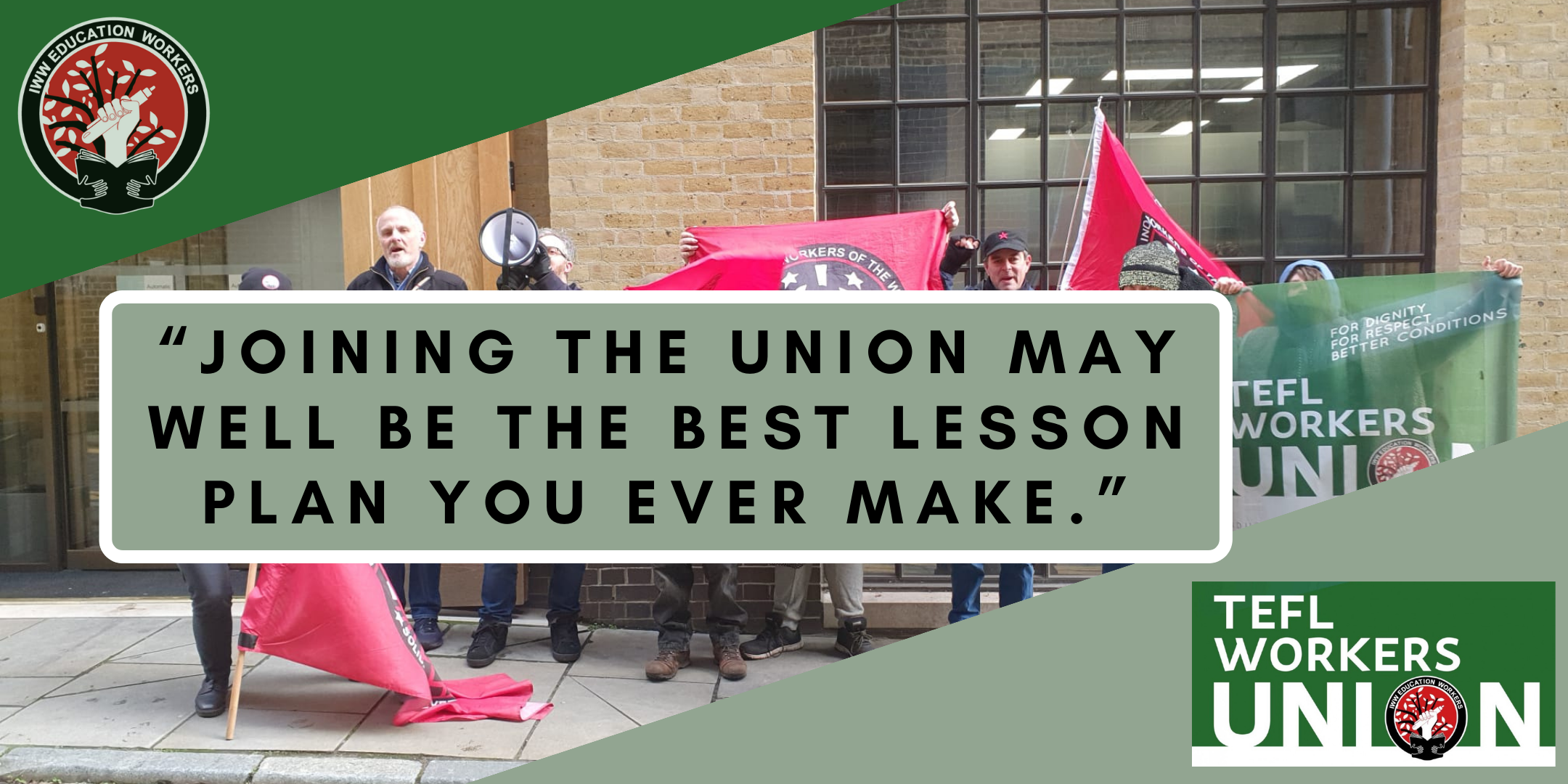When workers at the UK College of English (UKCBC) in London were told they were facing redundancy, one of them, A, made the decision to reach out to the union. While going through a redundancy process is never easy, having the support of a union rep made all the difference when it came to securing a positive outcome. Read A’s account below.
I worked at UKCBC for around a year and half starting on a zero hours contract, beginning by working with school groups in the summer and then covering whatever I could. Eventually I was given a class and then further responsibilities working evening shifts all while covering shifts, particularly morning shifts, which would often put me at 12-hour days with many unpaid hours in between classes.
I worked incredibly hard with the view to gaining a contract. When I gained this I was happy and proud that my work had been rewarded with a sense of job security.
However, just before my first ever paid holiday in TEFL I was informed by my manager that the evening classes and Soho campus would be closing. I asked what this meant for my situation regarding my contracted hours and I was told nothing. When I returned from holiday I had a face to face meeting and again was told nothing.
The next day there was a Zoom meeting in which we were told there would be redundancies.
I immediately thought that my job was most at risk as even though management would not give me a straight answer, I was the youngest contracted member of staff and the last member to be given a contract.
As such, I remembered I had come across, (while perusing the web on one of the unpaid 12-hour days) the Industrial Workers of the World TEFL branch. I sent an email, and as the redundancy meetings commenced and progressed I thought little of it as many of my colleagues had always bemoaned the beleaguered state of the industry and that a union couldn’t help anyway.
I was then informed via the redundancy process that I had scored lowest on what I felt to be a largely arbitrary scoring matrix, they were at pains to confirm to me that this was not due to me being the youngest and most recently contracted member of staff but because I scored lowest on a subjective scoring matrix.
This really stung because I had worked incredibly hard for UKCBC and received zero complaints with regards to my teaching over the entirety of my time working there and I was very proud of that.
Step in, my union rep. He was immediately helpful, organised a phone call with me and spoke about everything, including what I wanted to get out of the process and for the first time listened to my grievances. He was incredibly knowledgeable about the situation and let me know what I was entitled to with regards to the redundancy process. Which, unfortunately, was not much as I had been employed on a contract for just under a year.
Over the next few days we organised a plan and had a Zoom meeting with other union members. I informed management and HR that my union rep would be accompanying me to the final meeting. We met outside the building and we were able to spend a short time going over what we would say in the meeting. Suffice to say what management thought would be a 15-minute meeting ended around three hours later with a payout to the new year (redundancies were in October) and backdated holiday pay.
I’m incredibly grateful to the union, as more than anything, just having someone in your corner during these types of things is priceless.
I love teaching and I love my students but the way the industry treats its teachers is beyond the pale. If you are in a similar situation or struggling with management in your school, joining the TEFL Workers’ Union may well be the best lesson plan you ever make.
